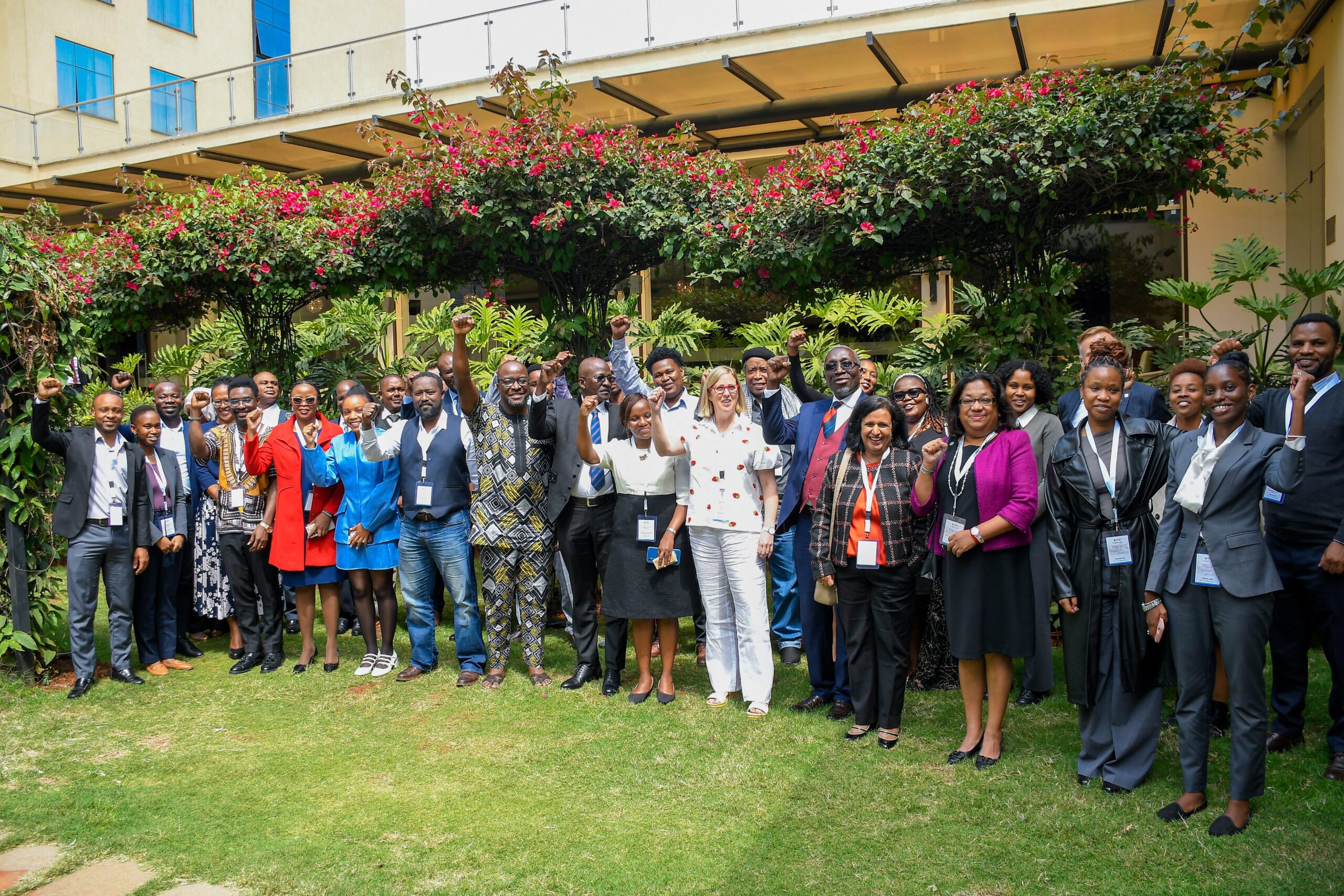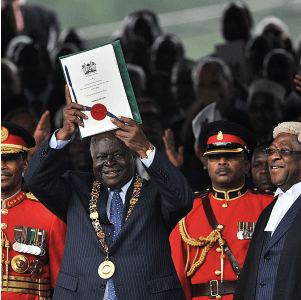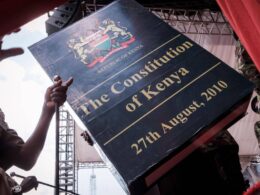NAIROBI,Kenya – Fourteen years ago, Kenya stood at the precipice of a new dawn with the promulgation of the 2010 Constitution. It was a momentous occasion, marked by hope and the promise of a just, equitable, and democratic society. The new Constitution was lauded as one of the most progressive in the world, with its comprehensive bill of rights, devolution of power, and an independent judiciary. However, as we commemorate this anniversary, the euphoria of that historic day has given way to the grim realization that much remains unchanged. The lofty ideals enshrined in the Constitution have been stymied by the very forces that Dr. Martin Luther King Jr. warned against in his powerful speech on the “Three Evils of Society”—racism, economic exploitation, and militarism.
Dr. King’s speech, though delivered in a different era and context, resonates deeply with Kenya’s current socio-political landscape. His identification of the three evils as the root causes of social injustice and human suffering can be directly mapped onto the Kenyan experience. Despite the progressive framework of the Constitution, Kenya continues to grapple with ethnic divisions, economic inequality, and the creeping militarization of civilian spaces—all of which have hindered the realization of the Constitution’s promises.
Dr. King spoke of racism as a pervasive evil that sowed division and conflict. In Kenya, the equivalent of this pernicious force is the enduring scourge of tribalism. The Constitution sought to create a nation where all citizens are equal, regardless of their ethnicity. Yet, 14 years on, ethnic divisions remain a potent force in Kenyan politics and society. Political allegiances are often determined by tribal identity rather than ideology or policy. Elections are frequently marred by ethnic tension and violence, with politicians exploiting tribal loyalties to secure votes. The Constitution’s vision of a united Kenya has been undermined by misleaders who prioritize ethnic patronage over national unity. The devolution of power, intended to bring governance closer to the people and reduce ethnic tensions, has sometimes had the opposite effect, exacerbating local tribal rivalries. As a result, the dream of a Kenya where individuals are judged by the content of their character, not the tribe they belong to, remains elusive.
Economic exploitation was another evil that Dr. King identified as a barrier to true equality. The Kenyan Constitution enshrines social and economic rights, including the right to education, health, and a decent standard of living. Yet, the gap between the rich and the poor has continued to widen over the past 14 years. Corruption, mismanagement, and economic policies that favor the wealthy have entrenched inequality, leaving millions of Kenyans in poverty. The Constitution’s promise of social justice has been betrayed by a political elite that has enriched itself at the expense of the people. Grand corruption scandals, such as the theft of public funds meant for health services and infrastructure development, have become all too common. Meanwhile, the majority of Kenyans struggle to access basic services, and youth unemployment remains alarmingly high. The economic exploitation of the poor by the powerful has not only deepened inequality but has also eroded public trust in the institutions meant to protect them.
The final evil that Dr. King warned against was militarism—the use of violence and coercion to maintain control. In Kenya, there has been a worrying trend towards the militarization of civilian spaces, a phenomenon that has accelerated in recent years. The deployment of police and the military to quell protests and maintain public order, as seen in the response to the Gen Z demonstrations, is symptomatic of an increasingly authoritarian approach to governance. The Constitution guarantees the right to protest, freedom of expression, and the protection of civil liberties. However, these rights have been repeatedly violated in the name of security and public order. The use of excessive force by security agencies, the arbitrary detention of activists, and the restriction of media freedom including throttling of the internet are all indicative of a government that is willing to sacrifice the rule of law to maintain its grip on power.
Moreover, the government’s attempts to undermine the judiciary—a key pillar of the Constitution—further illustrate this drift towards authoritarianism. Threats to defund the judiciary, attacks on judicial officers, and the disregard for court orders have undermined the independence of the judiciary and weakened the checks and balances that are crucial for a functioning democracy.
As we reflect on 14 years since the inauguration of the Kenyan Constitution, it is clear that the vision of a just, equitable, and democratic society remains unfulfilled. The three evils that Dr. Martin Luther King Jr. spoke of—racism (tribalism), economic exploitation, and militarism—continue to plague Kenya, hindering the realization of the Constitution’s promises.
This anniversary should serve as a call to action for all Kenyans. It is a reminder that the fight for justice, equality, and democracy is ongoing. The Constitution is not a mere document but a living framework that requires constant vigilance, commitment, and courage to bring its principles to life. As Dr. King so powerfully stated, “Injustice anywhere is a threat to justice everywhere.” It is incumbent upon us all to resist the forces that seek to divide, exploit, and oppress, and to work towards building the Kenya that was envisioned 14 years ago. The journey is far from over, but with renewed determination and collective effort, the dream of a just and prosperous Kenya can still be realized.
Thuku Mburu is a Programme Officer at the Kenyan Section of the International Commission of Jurists (ICJ Kenya). This article was first published on the Daily Nation.










